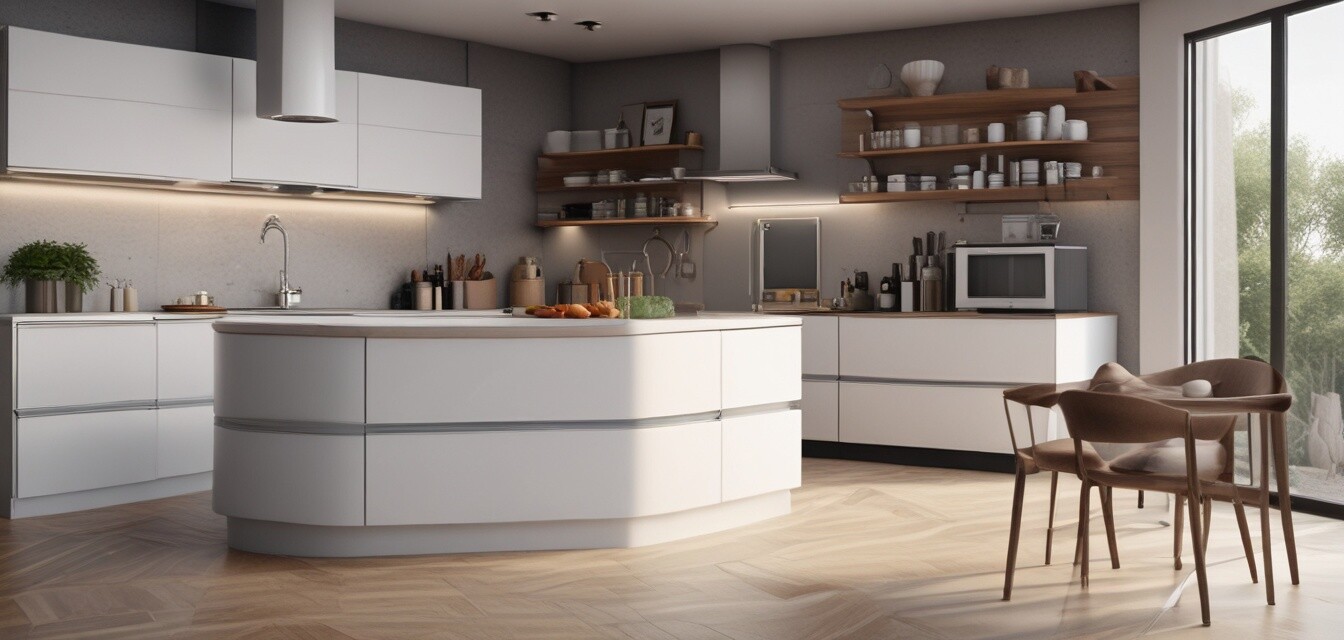
Sustainability in the Smart Kitchen: Going Green in 2025
Key Takeaways
- Smart kitchens utilize innovative technology to reduce energy consumption.
- Modern appliances are designed to minimize food waste through smart planning.
- Sustainable cooking practices enhance both efficiency and environmental impact.
- The trend towards greener kitchens is set to accelerate by 2025.
- Smart kitchen solutions are increasingly user-friendly and accessible to everyone.
As we move towards 2025, the focus on sustainability in our kitchens has never been more crucial. With the advent of smart kitchens, we are not just witnessing a technological revolution, but also a significant shift towards more environmentally-friendly practices that promise to reduce energy consumption and food waste. This article delves into how technology is shaping sustainable cooking and the various innovations that are leading the way.
The rise of smart kitchens
Smart kitchens integrate advanced technologies that simplify cooking and promote energy efficiency. By incorporating devices that connect to the internet, users can control appliances remotely, receive alerts, and optimize energy usage. Let’s explore some of these features.
Innovative technologies transforming kitchens
| Technology | Description | Benefits |
|---|---|---|
| Smart Ovens | Connect to Wi-Fi for remote control and recipe guidance. | Energy optimization and reduced cooking time. |
| Smart Refrigerators | Track food inventory and expiration dates. | Minimizes food waste by reminding users to consume items. |
| Touchless Faucets | Automatically dispense water with a wave of the hand. | Reduces water waste and enhances hygiene. |
Energy-efficient appliances
The introduction of energy-efficient appliances has greatly contributed to sustainability in kitchens. These appliances consume less energy compared to traditional models, significantly reducing utility bills and environmental impact.
Why choose energy-efficient appliances?
- Lower energy costs.
- Environmental benefits through reduced carbon footprint.
- Eligibility for utility rebates and tax incentives.
- Last longer due to better engineering, minimizing waste.
Reducing food waste with smart technology
Food waste is a significant contributor to environmental issues. Smart kitchens are addressing this problem through various means:
- Inventory tracking: Smart fridges keep track of food items and their expiration dates, helping users consume items before they spoil.
- Recipe suggestions: Using existing ingredients, smart appliances can suggest recipes, encouraging the use of what you have on hand.
- Portion control: Smart scales can help measure ingredients accurately, promoting precise cooking and avoiding excess.
Implementing sustainable practices in your kitchen
Aside from investing in smart appliances, there are sustainable practices you can adopt in your kitchen:
Beginner tips for a sustainable kitchen
- Plan meals ahead to reduce impulse purchases and food waste.
- Choose seasonal and local produce to decrease the carbon footprint of your food.
- Utilize compost bins for organic waste.
- Practice mindful cooking techniques that minimize energy use.
Future of sustainable kitchens
The future of smart kitchens looks promising with continuous advancements aimed at sustainability. Here are a few trends you can expect by 2025:
| Trend | Impact |
|---|---|
| Increased use of AI | AI-driven kitchen assistants will streamline meal prep and reduce energy usage. |
| Integration with smart home systems | More seamless control of kitchen appliances leading to better energy management. |
| Focus on sustainable materials | Appliances made from recycled and eco-friendly materials will grow in popularity. |
Conclusion
As we look towards 2025, the trend of sustainability in smart kitchens is only going to grow. By investing in energy-efficient appliances, embracing innovative technologies, and adopting mindful cooking practices, anyone can create a kitchen that is not just smart but also green. For more insights into kitchen technology, visit our News and Trends section.
Pros
- Improved energy efficiency through advanced appliances.
- Reduction in food waste with smart inventory tracking.
- Enhanced convenience with remote monitoring and control.
Cons
- Initial investment cost can be high for smart appliances.
- Dependence on technology can lead to potential technical issues.